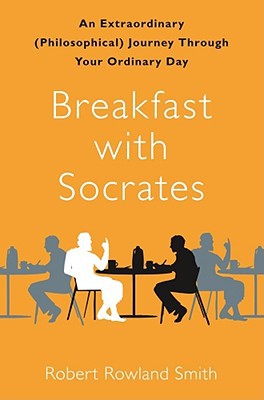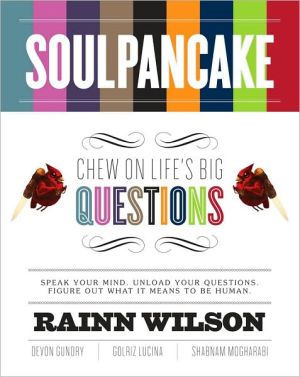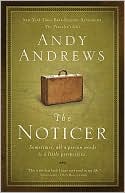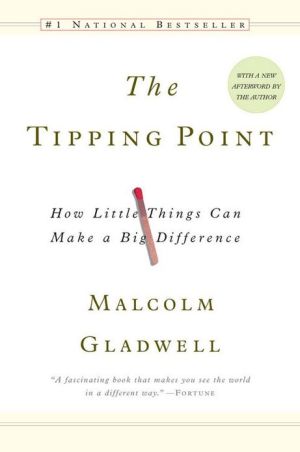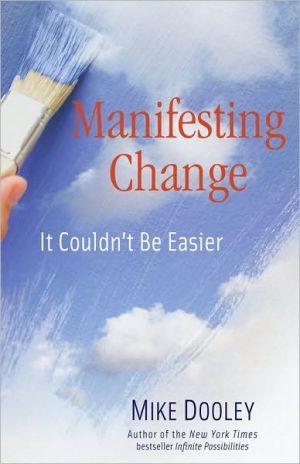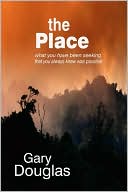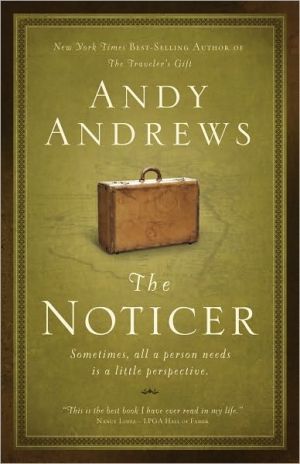Breakfast with Socrates: An Extraordinary (Philosophical) Journey Through Your Ordinary Day
Ever want to have a bagel with Hegel? Eggs with Bacon? Or spend a day with Socrates, Mill, Herodotus, or Kant, able to pick their brains about the most mundane moments of your life? Former Oxford Philosophy Fellow Robert Rowland Smith thought he would, and so with dry wit and marvelous invention, Smith whisks you through a typical day, injecting a little philosophy into it at every turn. Wake up with Descartes, go to work with Plato and Nietzsche, visit the gym with Kant, have sex with Ovid...
Search in google:
Have breakfast with Socrates, go to work with Nietzsche, head to the gym with Foucault, then have sex with Ovid (or Simone de Beauvoir). Former Oxford Philosophy Fellow Robert Rowland Smith whisks you through an ordinary day with history's most extraordinary thinkers, explaining what they might have to say about your routine. From waking up in the morning through traveling to work, shopping, eating, going to a party, falling asleep, and dreaming, Smith connects our most mundane habits to the wider world of ideas. Start with waking up: What does it really mean to be awake? How do we know we're not still dreaming? Descartes argues that if you're able to doubt whether you're awake, you are at least thinking, and so you probably exist -- no small achievement for first thing in the morning. Or take going to the gym: As you toil on the treadmill, is your panting a sign of virtue or of vice, of healthy exertion or of unhealthy narcissism? Working out is a version of what Max Weber called the Protestant work ethic -- a kind of spiritual exercise, it also leads to worldly vanity. With dry wit and marvelous invention, Smith draws on philosophy, literature, art, politics, and psychology to wake us up to a stunning range of ideas about how to live. Neither breakfast, lunch, nor dinner will ever be the same again. Publishers Weekly Modeled on the pop philosopher Alain de Botton's trademark blend of everyday observation and intellectual sophistication, this lively jaunt through the course of a day treats readers to such disquisitions as Thomas Hobbes on rush-hour traffic, Jacques Lacan on shopping, and Friedrich Nietzsche on work. Journalist Rowland Smith does a fair job of concisely explaining big ideas, and he offers a surprisingly colorful cast of thinkers from Carl Schmitt to Michel Foucault. He's at his best teasing out the little idiosyncrasies of modern experience, where simply washing your face in the morning betrays a remarkable optimism for the day ahead and fighting with your partner once in a while might actually be a good idea. While occasionally skirting into shallow discussions of some philosophers, the author maintains the central conceit of describing a typical day with admirable resourcefulness. This charming book wears its erudition with ease and suggests that despite what Socrates says, it is in fact the unexamined day that is not worth living. (Mar.)
Breakfast with Socrates\ An Extraordinary (Philosophical) Journey Through Your Ordinary Day \ \ By Robert Rowland Smith \ Free Press\ Copyright © 2010 Robert Rowland Smith\ All right reserved.\ ISBN: 9781439148679 \ \ \ 1\ \ Waking Up\ \ \ \ THERE IS A LOVELY SONG called ?Alive? by Mara Carlyle that opens with the lines:\ \ \ I?m surprised by the sun every day I wake up,\ I?m surprised by waking up!\ \ \ Mara?s voice swings from woozy to perky as she sings, mimicking the change from slumber to consciousness. What?s cute about the lyric is that it reenacts the childlike wonder of waking up, the wonder that the world is still there, that the person waking still exists. Even for grown-ups, waking after too little sleep, or with a hangover, or beside the wrong lover, or following a series of troubled dreams, there is a moment, just before the jaundice or despair reloads, when simply to be awake again, and still alive, is an amazing surprise.\ \ Why is that? Why, even though we do it every single day of our lives, can waking up still surprise us? Is it precisely because, until that moment, you were sleeping and therefore not alert enough to be able to predict that you were about to wake up? If that is so, then technically speaking waking up can?t not be a surprise?because right before it you are, by definition, asleep.\ \ So even though waking up might be the most foreseeable event in our lives, as dependable as the sun rising in the morning, we never actually see it coming. Predictable and unpredictable in equal measure, waking up is a paradox, a kink in the straight logic of things, which is just one of the reasons why it?s worth thinking about. In fact, as ordinary as it seems, waking up is one of the profoundest actions we can take. It may sound odd to say that there is a philosophy of waking up, but in a way the whole of philosophy is about nothing else.\ \ For hundreds of years, philosophy has concerned itself with questions of consciousness, and being conscious, obviously enough, implies being awake. It?s true that at the end of the nineteenth century we begin to get full-blown philosophies of un consciousness?that?s what psychoanalysis is all about?but far and away the dominant trend in philosophy has been to focus on conscious phenomena, on waking life: what it is to think, to feel, to know, to believe, to sense, to perceive, to act, to choose, to like, to love, to do good and to do evil, activities that all belong to the realm of waking rather than sleeping.\ \ So there you are: you?re awake. You may not be a morning person, but if you?re awake at least you?re conscious. Or are you? How do you know you?re not still asleep? How do you know you?re not dreaming being awake? How do you know that everything around you, including yourself, is not an illusion, a trick played on you by some malevolent sprite?\ \ This, of course, has become one of the most famous philosophical questions of all, and the most famous philosophical answer to it came in the 1630s from Ren? Descartes, a Frenchman who lived most of his life in the Netherlands. Like most philosophers confronted with a perplexing world, Descartes wanted to establish some certainties, and his conceit was to do so by turning philosophy on its head. Rather than starting with a hypothesis, or a set of assumptions, or a first principle, or a scientific law, he committed to start with nothing and to take nothing for granted: he would doubt absolutely everything, on a sort of ?guilty until proven innocent? basis, and see where it led him.\ \ Applying this skeptical method, Descartes arrived imperturbably at the realization that he could doubt everything except the fact that he was doubting. What?s more, if he was doubting, he had to be thinking. He then realized that only something that exists can think. How can something be thought without someone to do the thinking? Descartes was inching toward a discovery. Putting two and two together, he concluded that if you can think, you must exist. For even if you think you?re dead, the fact that you think you?re dead means you?re alive, because thinking implies existing. Descartes had found proof of existence. Hence his legendary epigram ?I think, therefore I am.? It was a giant leap forward not just for philosophy but for science in general, because it seemed to establish something irrefutable, and thereby provided solid ground for all further investigation.\ \ This is why waking up in the morning is such a philosophical act, a direct encounter with consciousness and existence. Really it?s ironic that we do it so unconsciously, because when we wake up we?re not only returning to consciousness, we?re also regaining the ability to prove it. During the night that wasn?t so certain. Although dreaming is a kind of thinking, and so another way, in theory, of proving that you exist, there were whole stretches of the night when you weren?t either thinking or dreaming, which raises the tricky question of whether you existed in those times: If thinking implies existing, do you exist when you?re not thinking? It?s a question I come back to in the last chapter of this book. For now, you know that you exist at least in the daytime.\ \ So, having taken philosophy right back to square one, Descartes made this great jump forward, and as you stretch in the morning, no matter how grumpy you might be, you?re embracing an invisible but extraordinary phenomenon: your own conscious existence, your own awareness that you?re there. This seems like a promising start, but having hard-boiled things to this perfect egg of thought, from which everything else should have followed, Descartes was somewhat uncertain as to what to do with his certainty. You?re now awake, you?re conscious and you exist. But what next?\ \ Being awake and conscious tends to be associated with having your faculties about you, where the word faculties effectively means your ability to think coherently, to reason things out. But just because you?re awake, does this automatically mean that your faculties of reason are working? It might not always feel like it?getting your brain into gear can take a little time?but as your eyes adjust to the light, is your reason waking up too? This is an important question, because you can be conscious and insane; being conscious and being rational don?t always go together. And it would be quite good in the morning to know not just that you exist, but that you?re thinking straight.\ \ Let?s say that as you swim up into consciousness through the bedclothes?doubting your existence, perhaps, but thereby proving it?you become aware of the traffic outside your window; perhaps a pneumatic drill decides to join the chorus, or the recycling truck comes by and the clash of broken glass keeps shattering the peace. You curse the noise and sink back into your pillow. Sitting at the end of your bed, Immanuel Kant, who was in his prime about 150 years after Descartes, would immediately challenge you?and not just because he was a renowned insomniac, famous for working all night in nightcap and robe. He?d certainly wonder if your reaction was rational. Why?\ \ Watching you trying to retreat under the duvet, Kant would argue that your waking perception that the sound of traffic is noisy is nothing more than that: a perception. You?re not necessarily making a rational judgment, and your reason may indeed still be asleep. For how can you be sure the noise you hear is the true noise and not just a reflection of your grumpiness? Is your reaching again for the covers the action of what Kant called pure reason, a universal truth that?s out there for everyone, or is it a personal response of laziness and avoidance?\ \ You might imagine that everywhere on your street people are cursing along with you, but even if you were to poll your neighbors, and they all agreed that the morning traffic on your street is indeed particularly irritating, still Kant wouldn?t be satisfied. He?d be pushing not just for an empirical or democratic version of the truth, but for something more enduring?pure reason, again?which lies above, beyond, and before any interpretations, individual or collective, that are made about reality. And if you think that in this Kant is being unrealistic, or dogmatic, or unduly severe, you need only remind yourself of certain cults in which 100 percent of the membership believe one thing to be true and 100 percent of them are deluded. Universal belief in something doesn?t equate to universal truth, and Kant was keen to refer back to Copernicus, the Polish polymath who in 1514 proved that the earth goes round the sun. Until that point, everybody believed the earth lay at the center of the universe, and everybody was wrong.\ \ It?s clear that, apart from its many other uses?birth, death, and the consummation of marriage, to name a few?the bed is a battleground for philosophies of waking up. Even if it provides firm support for the idea that you exist, it can?t be trusted to bear the weight of your perceptions. And although waking up relieves you of a large degree of doubt (Descartes), it immediately replaces it with the task of proving that what you feel first thing in the morning has any substance at all (Kant). The day has barely begun and you?ve already had quite a philosophical workout, and yet if philosophy has pondered these questions at such length, it is probably not philosophy but religion, and Christianity in particular, that has most leveraged the idea of waking up. For apart from anything else, the act of waking up is a playing out in miniature of the relationship between life and death, where going to sleep is like dying and waking up is like being born or born again. That relationship is not just metaphorical, however; there?s a very literal sense in which, when you go to bed, you can?t guarantee that you will ever wake up again. On both counts, Christianity has a special relevance.\ \ Consider this: there?s not much point to Christianity without Christ, and there?s not much point to Christ without resurrection, his alleged rising from the grave three days after dying on a cross he?d been nailed to by Roman soldiers. Christianity, to put it baldly, is a religion of waking up. It is the conviction that, for all the mystery shrouding it, death is literally only a sleep, and that you will, if you play your cards right, wake up again afterward in paradise. What is known grandly as ?resurrection? is an ordinary miracle, transcendent yet trivial, blessed but banal, as is brought out brilliantly in a wittily na?ve painting of the same name by a British artist of the mid-twentieth century, Stanley Spencer. The painting depicts the folk of an English village getting out of their graves, in their night-clothes, stretching and yawning, as though they have simply woken up in bed. The painting does what Christianity does: it treats death as an unthreatening interlude, no more scary than turning in for the night. As long as you?ve said your prayers, you can look forward to waking up in heaven.\ \ But of course, if there is this emphasis in Christianity on reawakening, its job in part is to outstare the alternative, namely, that when you go to bed you won?t wake up at all. In this view, rather than death being like sleep that you?ll wake up from, sleep threatens to become the death from which you?ll never wake up again. It?s interesting that one of Shakespeare?s sonnets refers to sleep as ?death?s second self,? because at first sight it seems that Shakespeare is comparing sleep with death in a rather conventional metaphorical way, but on closer inspection, he?s saying that sleep is not just like death, it?s death?s ?second self??that is, it?s a clone of death, or at best a dark emissary you would do well to treat with deference and trepidation. He takes the Christian idea that sleep and death are equivalent and throws it back at Christianity. Going to sleep is risky, he implies, because, rather than waking into the afterlife, you may well never wake up again. In the late 1590s, when Shakespeare was writing, average life expectancy was about thirty and the infant mortality rate was spectacularly higher than today.\ \ Small wonder, then, that when you awake, even in the twenty-first century, and slip the embrace of this shadowy stranger called sleep, you might still feel, beneath the magical surprise, a modicum of relief and even gratitude. And if Christianity profits from the fear implied in that, there?s another reason why the territory of waking up is so comfortably claimed by Christianity?and Islam too, for that matter. Although it?s determined by bodily rhythms, waking up lies psychologically at the mercy of something or someone else. The fact that we have been asleep and unconscious means waking up involves the disquieting sense of its being out of our control: it happens to us rather than us making it happen. So this moment of rescue that is the coming back into consciousness is easily attributed to divine intervention, as if an angel had snatched you back from the underworld.\ \ Of course, the connotations of underworld are more pagan than religious, but religion hasn?t been averse to benefiting also from the emotive power of paganist ritual, even if officially it has sought to distance itself. After all, if you?re hoping to get a new religion off the ground, you want to tap into as much of the symbolic repertoire available as you can?and then claim it was all your own. In any case, from its earliest beginnings, Christianity has harbored an occult strain that draws the link from the resurrection of Christ to the waking up of the earth in spring. We know, for example, that Easter assimilated an existing pagan festival that celebrated the lengthening of the days with a ?rite of spring? or a ?song of the earth.? It?s not so much that religion picked up where magic left off, converting the dark continent of superstition with the light of true belief, which tends to be how the story gets told. Rather, religion incorporated magic, assimilated or ingested it, drawing particular strength from its elemental focus on reawakening. All of which makes, of course, for a heady mix: the world groaning into wakefulness, the ice splitting, the tubers stirring, and the whole cosmic rhythm incorporated into a scene of priests solemnifying the return of the light of the world. And yet in our own small way, from our beds, we too reprise this supernatural motion of the natural year on a daily basis simply by waking up.\ \ The associations get only richer and more intense when you realize that the very concept of truth?the cornerstone of philosophy and religion alike, let alone the law?also rests heavily on the meaning of waking up. And you don?t need to be a philosopher to appreciate it, because there are clues to its dependency in everyday phrases such as ?waking up to the truth,? ?my eyes were opened,? and even ?wake up and smell the coffee.? If such phrases hint that waking up and truth are bedfellows of some sort, you need only go back to the ancient Greek for corroboration. There you?ll find that the word for truth is aletheia, from which in English we get the word lethargy. But see how the Greek word is a-letheia rather than letheia; that is, truth is the opposite of lethargy. And what is the opposite of lethargy, if not waking up? The truth lies in being awake and throwing off the sheets. In a certain sense, you?re most truly yourself when you awake. It?s hard to wake up inauthentically.\ \ The point is easy to miss, however. It?s not just that you need to wake up if you?re going to see or hear the truth, as important as that might be; rather, it?s that the truth itself is nothing other than a kind of waking up. How does that work? Turning to a third philosopher, G. W. F. Hegel, will shed some light.\ \ Hegel, a German philosopher of the early nineteenth century, writing shortly after Kant, was also interested in Christ?s prodigious waking up after death, and not least because it demonstrated what Hegel called absolute truth. According to the story, Christ passed through three phases: first he was alive, then he died, and finally?if it?s a story you believe?he was reborn. And unless he had been reborn, unless he had woken up again after death, he wouldn?t have been Christ but a charlatan, not the true Messiah but a fake. Jesus became Christ only at the third step, when the truth about him was revealed, confirmed, and completed. What?s more, he could have become himself only at the third step; take away that third step, or any of the preceding two, and he no longer makes sense as Christ. So the three-part structure was essential to the disclosure of his truth.\ \ Extraordinary as he may be, in this respect Christ is an ordinary example of how truth must always obey this law of three steps, in which the final step is a waking up, a climactic becoming true. In fact, anything of consequence in Hegel works in threes, a mechanism he called the dialectic, in which the truth is a kind of cosmic alarm clock that brings the world to its senses after a period of activity followed by rest. The very course of history has followed the same pattern, according to Hegel, in its gradual unfolding. First came the ancient Greek phase, which was full of sweetness and light, and even contained in it the germ of truth, but remained too ideal and ungrounded. The Greeks thought they were awake, but they weren?t. Then came the classical Roman phase, which was all too real and adult, but deadening by the same token?impressively important, granted, but terribly dry and judicial, as if putting things back to sleep through excessive ordering. At last the German phase arrives, the phase that Hegel himself was on the verge of witnessing, promising to blend the best of the Greek and the Roman but surpass them both, history?s final expression or renaissance, the proper rebeginning of the meaning of the world. History, for Hegel, was to wake up to its truth in the German nineteenth century.\ \ A bit later into that century, Hegel?s theory was to inspire a whole new school of thought that included such important thinkers as Jacob Burckhardt, Eduard Winkelmann, and Karl Marx, but to a modern ear, of course, Hegel?s claim sounds all too pat and self-aggrandizing. Does anyone in our relativist world seriously believe that there are any absolute truths left to be woken up? Apart from religious or political fundamentalists, almost certainly not. But it would be far easier to mock Hegel?s interpretation of history if it hadn?t, as the base narrative of Aryan destiny, provided grist to the Nazi mill. The hymning of ?Tomorrow Belongs to Me,? so chillingly imagined in Bob Fosse?s 1972 film Cabaret, is a way of announcing a renaissance or reawakening of a destiny that has been put nefariously to sleep. Even in much less ominous terms, the idea that the truth is something that has been languishing and needs to be woken, dragged from its bed and brought into the light of day, maintains an instinctive appeal. Think, for example, of the political gesture favored by conservatives of all stripes in all countries that involves reviving a truth that has been dormant, be it an exhortation to ?get back to basics? or the plea to ?return to core values.? The interest is essentially Hegelian or dialectical, because it presumes that the truth was once there, then it was covered up or put to sleep (usually by the ?opposition?), and now it is incumbent upon us to resuscitate it or wake it up again. The truth is all the more true, and all the more potent, if it is re awoken.\ \ We?re now 200 years beyond Hegel, and whether we have finally woken up to the truth or still loll about in our ?dogmatic slumbers? (as Kant once put it), we are asked to stay awake in a much more obvious way, a way that is a far cry from either philosophy or religion. For although you might rate the general level of consciousness in the world deplorably low, you?d have trouble denying that ours is a culture of wakefulness. You?d more than likely accept that we who live in capitalist societies, in cities that never sleep, inhabit the zone of the nonstop, of the 24/7, of round-the-clock surveillance, and of being constantly vigilant. In real terms, it?s increasingly hard to find the off switch, whether it belongs to our body or our BlackBerry. This means that, insofar as waking up implies having let ourselves fall asleep and take our eye off the screen, it?s become less a part of the natural order of things and more a nostalgic luxury. Have we encroached upon an era in which the best we can hope for is not achieving proper sleep but remaining on standby?\ \ If the answer is yes, it?s almost certainly down to two intertwining imperatives, twin gods really, that it?s become practically heretical to doubt. They are economic growth and technological innovation: ever higher GDP and upgrades ad infinitum. Together they have forced a global productive insomnia whereby the moment Japan goes to sleep, America wakes up and hurries to the screen. No break in production is to be tolerated, for the world has been recast as a factory whose goal is output, whose mode is efficiency, and in which ?waking up,? if it suggests having been asleep, is for wimps.\ \ What drives those twin gods in turn, generating this economic wakefulness, is not just money but morals. For all the vice it fosters in the form of overconsumption, such mechanical and monetary madness testifies to the eternal virtue of hard work. Don?t forget that being awake and industrious stand now, and are likely to stand for ever, in higher regard than being asleep and lazy. We are living out the logic of what Max Weber dubbed the Protestant work ethic, which does a lot of good but brings unintended consequences, and is an ethic that depends, at bottom, on getting up and getting going. The moment you wake up, you?re drawn into it.\ \ But of course, between getting up and getting to work stands an important step.\ \ ? 2009 Robert Rowland Smith Ltd.\ \ \ Continues... \ \ \ \ Excerpted from Breakfast with Socrates by Robert Rowland Smith Copyright © 2010 by Robert Rowland Smith. Excerpted by permission.\ All rights reserved. No part of this excerpt may be reproduced or reprinted without permission in writing from the publisher.\ Excerpts are provided by Dial-A-Book Inc. solely for the personal use of visitors to this web site. \ \
Acknowledgments xi\ Introduction xiii\ 1 Waking Up 1\ 2 Getting Ready 15\ 3 Traveling to Work 27\ 4 Being at Work 37\ 5 Going to the Doctor 51\ 6 Having Lunch with Your Parents 65\ 7 Playing Hooky 77\ 8 Shopping 89\ 9 Booking a Holiday 99\ 10 Going to the Gym 111\ 11 Taking a Bath 123\ 12 Reading a Book 133\ 13 Watching TV 147\ 14 Cooking and Eating Dinner 159\ 15 Going to a Party 171\ 16 Arguing with Your Partner 181\ 17 Having Sex 193\ 18 Falling Asleep and Dreaming 205\ Afterword 219\ Further Reading 223\ Index 225
\ From Barnes & NobleBecause many of its most famous practitioners are long dead, many of us regard philosophy as an activity far removed from our ordinary daily lives. Robert Rowland Smith, however, knows better. He argues that even though Socrates wore a toga, he would make a great breakfast buddy. In fact, he contends that philosophers make great meal companions; imagining, for example, bagels with Hegel and eggs with Bacon. (Francis, that is.) Breakfast with Socrates guides curious readers through an entire day (getting up; going to work; shopping; watching TV; having sex) with a philosopher by your side. Your escorts will include such luminaries as Aristotle, Walter Benjamin, Thomas Hobbes, Woody Allen, and Jim Carrey. An illuminating diversion; now in paperback and NOOKbook.\ \ \ \ \ \ Publishers WeeklyModeled on the pop philosopher Alain de Botton's trademark blend of everyday observation and intellectual sophistication, this lively jaunt through the course of a day treats readers to such disquisitions as Thomas Hobbes on rush-hour traffic, Jacques Lacan on shopping, and Friedrich Nietzsche on work. Journalist Rowland Smith does a fair job of concisely explaining big ideas, and he offers a surprisingly colorful cast of thinkers from Carl Schmitt to Michel Foucault. He's at his best teasing out the little idiosyncrasies of modern experience, where simply washing your face in the morning betrays a remarkable optimism for the day ahead and fighting with your partner once in a while might actually be a good idea. While occasionally skirting into shallow discussions of some philosophers, the author maintains the central conceit of describing a typical day with admirable resourcefulness. This charming book wears its erudition with ease and suggests that despite what Socrates says, it is in fact the unexamined day that is not worth living. (Mar.)\ \ \ Library JournalIn this short and entertaining book, Smith (Derrida and Autobiography) uses the ideas of past philosophers, psychologists, and artists to analyze the daily, and sometimes mundane, actions of our lives. Topics such as commuting, eating, and sleeping are looked at through the lens of various thinkers to show how we can critically examine everyday actions and events. For example, in the section "Going to the Gym," he applies the ideas of Heidegger to explain the possible shortcomings of exercise because, while it can temporarily change your body, it can't change your being, and he compares modern-day gyms to Foucault's theory of how states create a docile and obedient citizen through routine and monitored activities. Smith does not argue for one idea over another but applies the theories in an interesting and sometimes lighthearted manner. VERDICT The author's accessible writing style and presentation will make this book appealing to readers with a general interest in philosophy or those looking to add some humor and meaning to the ordinary events in their lives.—Scott Duimstra, Capital Area Dist. Lib., Lansing, MI\ \ \ \ \ From the Publisher"What makes Smith’s book genius isn’t just the ability to lay out an interesting, eloquent, and relevant piece of work – which he does. The kicker for “Breakfast with Socrates” is that it’s just plain funny." \ —The Christian Science Monitor\ "Robert Rowland Smith takes the reader into a worm hole of psychology, sociology and theology to show us the hidden meanings in our daily lives. A thoughtful and continuously entertaining picture of human behavior. A filling mental meal that should leave you delightfully satisfied."\ —WIRED\ "The author is genuinely good at making connections between important ideas and lived experience, and successful in showing that philosophy can be a vehicle for making the trivialities of life more meaningful (and hence more bearable) than they otherwise might be."\ —Booklist\ "Philosophy made accessible and applied to the quotidian...manages to be funny without underestimating the reader."\ —The Financial Times\ "Joyously wise."\ —Church Times\ "This charming book wears its erudition with ease and suggests that despite what Socrates says, it is in fact the unexamined day that is not worth living."\ —Publisher’s Weekly\ "Rowland Smith supposes his reader is his social and intellectual equal who just happens not to have studied the discipline he did. Taking an aspect of daily life in each chapter - getting out of bed, going to work - he explains key concepts in a way that is amusing and enlightening. He doesn't apply the concepts for his readers but allows them to draw their own conclusions."\ —The Australian\ "...a very knowledgeable and affable guide."\ —Bookbag\ "I am often asked to recommend a good introduction to philosophy - now I've discovered one. There are plenty of books but mostly they're either the 'wrong kind' of philosophy or they are terribly written. Smith's work is witty, inventive and intelligent - Carl Schmitt on arguing with your partner, Jacques Derrida on booking a holiday - and brilliantly shows how grounded High Theory really is."\ —Times Higher Education Supplement\ "Smith does not argue for one idea over another but applies the theories in an interesting and sometimes lighthearted manner...The author's accessible writing style and presentation will make this book appealing to readers with a general interest in philosophy or those looking to add some humor and meaning to the ordinary events in their lives."\ —Library Journal\ \ \
